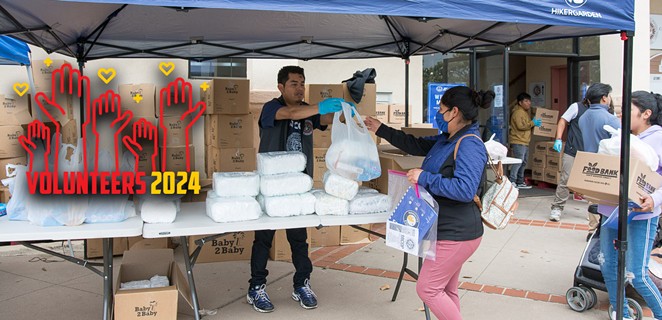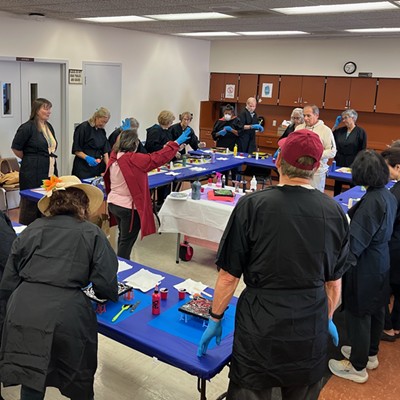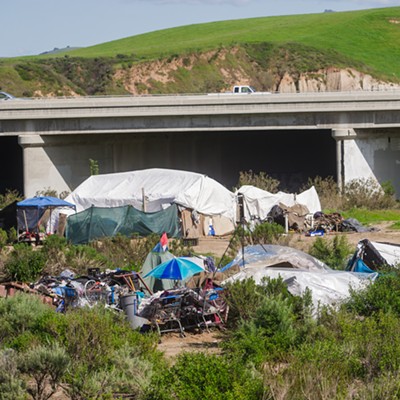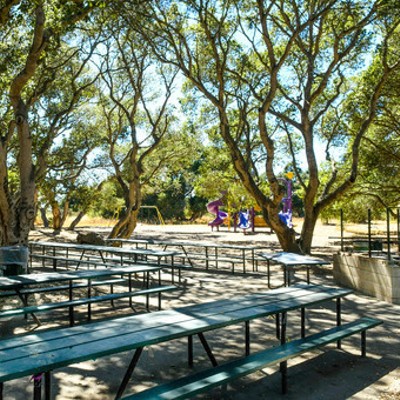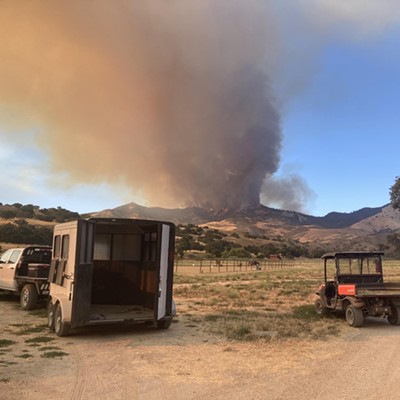Several organizations are dedicated to advocating for policy change to better serve communities in need of greater assistance—or that have been historically underserved.
The Mixteco/Indígena Community Organizing Project (MICOP) and the Central Coast Alliance United for a Sustainable Economy (CAUSE) are two of many nonprofits working on the Central Coast that people can volunteer with while learning more about advocacy efforts and helping their communities.
MICOP was founded in 2001 by Nurse Practitioner Sarah Young to address the immediate needs of Indigenous communities in Oxnard. Years later, the nonprofit has expanded to 20 different programs, offices in Ventura and Santa Barbara counties, and has helped dozens of Indigenous families through advocacy and outreach.
Santa Maria Program Director Ana Huynh told the Sun that MICOP needs the most volunteers for its monthly food distributions, which provide food for up to 300 farmworker families in the area. In partnership with the Foodbank of Santa Barbara County, MICOP receives fruits, vegetables, and culturally relevant foods like beans and rice, which it distributes to the community one Sunday every month.
“MICOP has funding to purchase food. … I think we’re one of the few that distribute this culturally relevant food,” Huynh said. “We need to be able to bag all of these items to distribute 300 bags, or to 300 families.”
Volunteers typically show up for their work at 5 or 6 a.m. to bag the food that gets distributed starting at 9 a.m. Typically, bagging isn’t complete by 9 a.m., so volunteers will continue this work—which allows MICOP’s bilingual or trilingual staff to work with the farmworkers, distribute the food, and address any of their other concerns, she said.
“We also have a station where we distribute diapers; we need volunteers handing out those diapers as well,” Huynh added. “Because there are a lot of items, with two to three bags of food and diapers, it’s heavy [for families] to carry to their car. When we do have the help, some volunteers will help the families take the bags of food to their car.”
While the food distribution program needs the most hands, MICOP also accepts volunteers who want to help out with office work, she said.
“Right now, it’s just the data entry that’s the most crucial, but there’s other little things like vacuuming … restocking supplies. Sometimes when we have our programming we need help with cleaning up,” Huynh said. “When we have workshops with the community or forums, they’re in the office and we need help with cleanup and setting up the room.”
The data entry is the most crucial part because it tallies how many clients the nonprofit has served in the week or month and tracks their preferred language, which MICOP reports to its funders and allows the organization to share the work it’s conducted with Santa Barbara and Ventura county stakeholders, she said.
“This is a community that has been underserved for a very long time, and it’s a community that has a lot of need and we alone can’t do it. One agency can’t do all the work that needs to be done,” Huynh said. “Our organization is a great way to give back to a community that finally has this assistance; it’s hard work, and we appreciate all the help we can get.”
MICOP employees will first have conversations with any individuals interested in volunteering with the nonprofit. Food distribution program dates have not been confirmed as of Jan. 5.

MICOP has collaborated with CAUSE for events designed for North County’s farmworkers—including hosting a vigil after a recent farmworker death in Guadalupe and a December event dedicated to celebrating Santa Maria’s farmworkers and their contributions to their communities, CAUSE Communications Manager Jay Chotirmal told the Sun.
Behind the farmworker celebration were CAUSE’s community leaders, a group of volunteers who work with their communities, identify issues affecting them, and try to address the issues through advocacy efforts at a local government level, connecting to local officials, or hosting events to raise awareness, he said.
“Our leaders are the backbone of our organization and they volunteer all their time and effort, so it’s incredibly important to the work we are doing,” Chotirmal said.
CAUSE community leaders can work on issues relating to immigrants’ rights, housing justice, workers’ rights, environmental justice, and voting rights. There’s no time commitment with various levels of contribution—with some showing up to support their peers and others who might organize and work on a particular event.
Community leaders work closely with CAUSE’s policy advocates and community organizers on staff to discuss what issues residents are facing and what the nonprofit can do to address those issues in a strategic and effective manner, he said. In Santa Maria, CAUSE community leaders and CAUSE youth attended Santa Barbara County Board of Supervisors meetings advocating for an extension of the Santa Maria River trail—promoting greater access to green space.
“I think it’s incredibly important for us to be engaged in our community to hear from community members so we are making sure that we are building a region that works for all of us,” Chotirmal said. “The importance of leaders really is to amplify the voices of those who are often systematically neglected from certain conversations.”
By coming together and using a “collective voice,” CAUSE and its volunteers can help ensure that the issues that working families and communities are facing are addressed and alleviated, he said.
“Our model of organizing, mobilizing truly relies on our leaders,” Chotirmal said. “Our leaders help us understand what’s going on in the community and how we educate folks in order to get to the sustainable economy we hope for at CAUSE.”
Reach Staff Writer Taylor O’Connor at [email protected].


